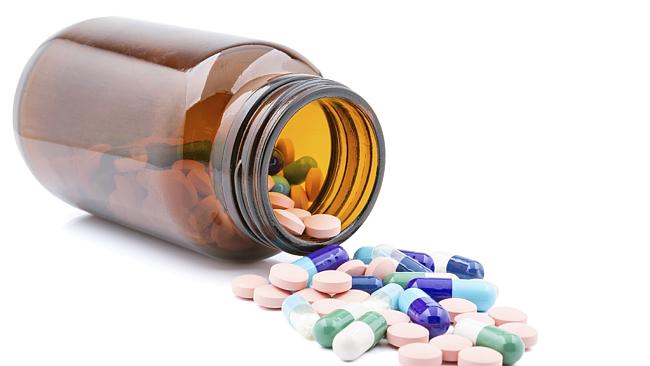
Medicine price yoyo, some prices up, others down. Source: Thinkstock Source: ThinkStock
THE price of antibiotics, blood pressure pills and hundreds of other medications will rise by over 40 per cent from July 1 as a result of an Abbott Government agreement with chemists.
The price rise for consumers and taxpayers results from a government decision to replaced the 15 per cent mark up component of a chemist’s fee with a flat $3.49 “administration and handling fee”.
This new fee will drive up the price of low cost drugs such as antibiotic amoxycillin from $8.29 per script to $11.75 per script. Hundreds of other low cost drugs that cost the government less than $23 a script will also be affected.
General consumers will pay the extra out of their own pocket but when a pensioner buys the medicine the taxpayer will pick up the extra tab.

The price of low cost medicines will rise by over 40 per cent as a result of the new pharmacy agreement. Source: Thinkstock. Source: ThinkStock
Prescription drugs to cost ‘billions’ more
Consumer’s Health Forum calculated yesterday the deal meant consumers will pay billions of dollars more for prescribed medicines over the next five years.
“Figures in the new agreement show that consumers will directly contribute an estimated $8.2 billion to pharmacy owners’ remuneration over five years and that amounts to 34 per cent of the estimated $23.6 billion in total payments for PBS medicines to pharmacies.
“That’s up from the $4.8 billion or 29 per cent of payments under the current agreement,” the Chief Executive Officer of CHF,” Leanne Wells said.
However, Health Minister Sussan Ley’s office says the extra money paid by consumers represents the fact more scripts will be dispensed as the population gets older and sicker.

Pharmacies will get a $117,000 a year pay rise from the new pharmacy agreement. Source: Thinkstock Source: Supplied
Price shuffle
Under the deal announced by the government yesterday the price of some medicines will fall.
Chemists will for the first time be able to discount the $37.70 patient payment for subsidised drugs ($51.0 for pensioners) by $1.
And the price of many common medicines will halve from October next year when the government changes the way it calculates prices when a generic competitor enters the market.
Cholesterol medicine atorvastatin will drop in price from $14.60 to $10.68, heart medicine clopidogrel will drop in price from $14.01 to $10.38, cholesterol medicine rosuvastatin will drop from $29.74 to $18.25 and depression medicine Vanlafaxine will fall from $16.52 to $11.65.
Some over the counter medicines like aspirin and paracetamol will be removed from the subsidy scheme and consumers will have to buy them in supermarkets or over the counter in chemists.
The medicines industry will take a $6.6 billion hit from a range of measures including a mandatory 5 per cent price cut in prices after a new medicine has been on the medicine subsidy scheme for more than five years.

Some over the counter medicines like paracetamol and aspirin will be removed from the subsidy scheme. Source: Thinkstock Source: Supplied
Monopoly maintained
Chemists will maintain their monopoly in selling prescription drugs and restrictive location rules than ban new pharmacies opening within 1.5 kilometres of an existing pharmacy will remain.
The government will also spend $1.2 billion on giving chemists a greater role in primary care in a move that has angered the Australian Medical Association who claim chemists aren’t trained to be doctors.
Chemists will have to prove to a government committee any primary care services they provide like clinical interventions, packing drugs in Webster packs and monitoring whether a patient takes their medicines are cost effective before they get paid.
If the number of scripts does not rise by 16 per cent as forecast in the agreement the government has agreed to compensate chemists under a risk sharing deal.

Federal health minister Sussan Ley says the savings from the new medicines policy will help pay for new medicines on the subsidy scheme and reduce the budget deficit. Picture: Tim Marsden Source: News Corp Australia
Health Minister Sussan Ley defended the changes that will leads to the medicine price rises.
“Pharmacists incur the same infrastructure and handling costs for a box of medicine no matter the price of the drug, yet under the current system the mark up you paid depended on the price of the drug — that’s hardly fair to pharmacists, consumers or taxpayers, she said.
“This new agreement gives pharmacists more incentives than ever to discount the price Australians pay for medicines and having one set stable fee will give them greater remuneration certainty to be able to pass these savings on.
The minster refused to reveal how many medicines would increase in price.
The Pharmacy Guild of Australia said chemists could discount medicines that cost less than $37.70 and many may not pass on the price increases to consumers.
